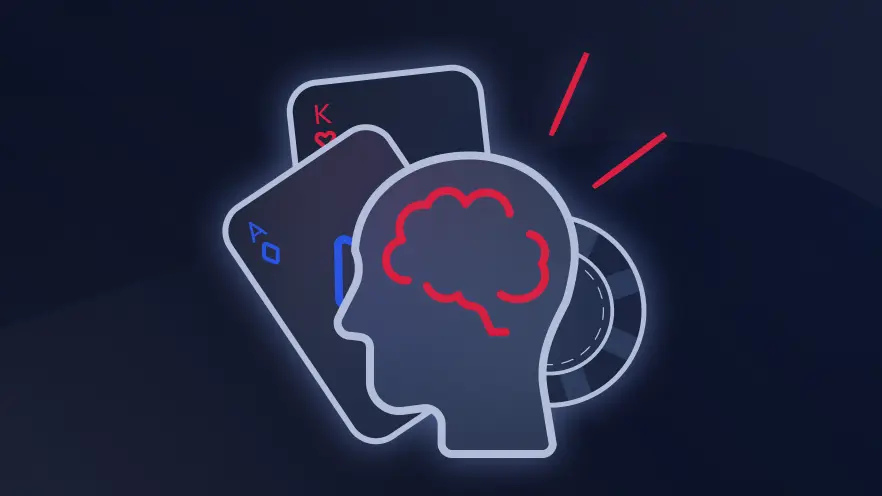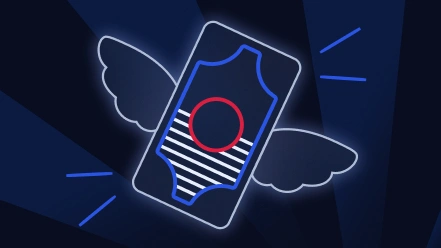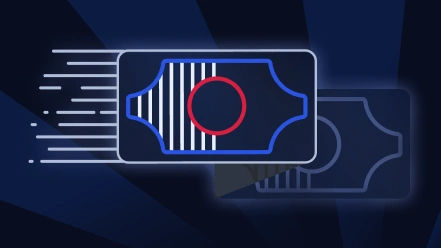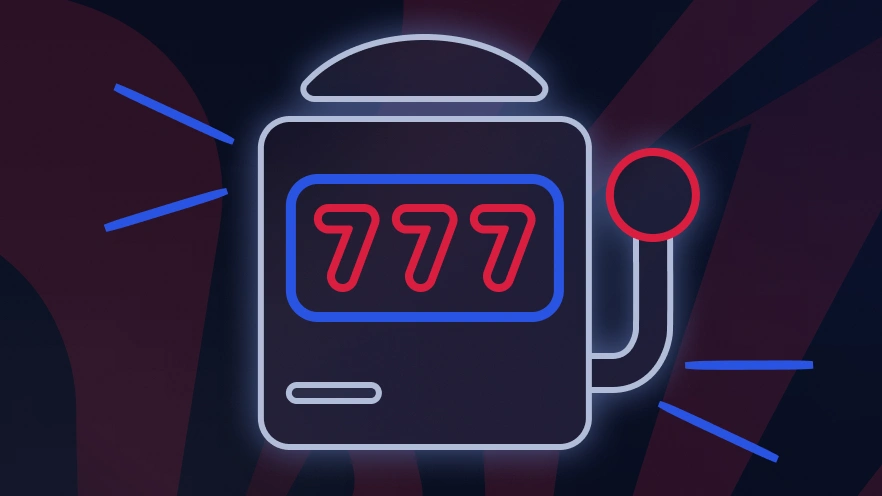
Responsible Gambling Guide
Enjoy playing at online casinos safely with our responsible gambling guide. Learn how to manage your problem gambling by staying in control, setting limits, and recognizing the signs of a gambling addiction.
Responsible Gambling Statistics in the USA
According to research by the National Council on Problem Gaming in the US, approximately 1% of American adults are defined as "pathological gamblers." In addition, a further 2-3% of people experience "less serious but still significant problems," according to a paper published by Harvard Medical School.
Across the US, this means around 15 million either suffer from or are at risk of developing gambling addiction problems during their lifetime.
To fulfill our duty as a responsible online gaming expert, we want you to recognize the common signs of gambling addiction. For us to help, you also need to help yourself, and that requires an understanding of gambling addiction's common signs.
- Preoccupation with past, present, and future gambling experiences and with ways to obtain money for gambling.
- Need to increase the amount of wagers.
- Repeated unsuccessful efforts to cut back or stop.
- Becoming restless or irritable when trying to cut back or stop.
- Gambling to escape from everyday problems or to relieve feelings of helplessness, anxiety, or depression.
- Trying to recoup losses immediately (chasing losses).
- Lying about gambling.
- Committing illegal acts to finance gambling.
- Losing or jeopardizing a personal relationship, job, or career opportunity because of gambling.
- Requesting gifts or loans to pay gambling debts.
In essence, problem gambling is a desire to control something uncontrollable. Through a lack of understanding about the nature of gambling (i.e., how luck swings both ways but always evens out) and an addictive personality, people become fixated on "beating the house."
Worried About Problem Gambling? We Can Help
Our short quiz takes just a few minutes to complete and will provide you with an insight into how gambling might be affecting you or someone you care about. Once complete, you will be provided with tailored support should you need it.
Have your gambling activities ever caused you to take time off work/college or miss a social event such as a birthday party, meeting with friends or trip to see members of your family?
Missing important events in your life due to gambling is a sign you may have a problem. When the desire to place a bet is greater than your desire to socialise, there is a good chance that you're falling into the trap of gambling addiction. If your daily life is being pushed aside in favour of gambling, seek the advice of a professional and inform them that your habits are beginning to impact on your standard of living.
How Problem Gambling Affects Lives
As with many social vices, problem gambling has a dual effect on both the individual and their surroundings. Using the above definition of pathological gambling as a base, it's easy to see how family members, friends, and, potentially, innocent victims can get caught up in the web of gambling addiction.
Initially, the problem is isolated to the individual. Before finances become an issue, the individual is first subject to mood swings and feelings of guilt. It's at this point that money then becomes a problem, and that's when things start to impact everyone around the individual.
When the money runs out, people start to become desperate, which fuels a slew of negative emotions. In between paying living costs and trying to continue a gambling habit, those with an issue need cash, and this is when other people are dragged into the mess. Whether it's borrowing or stealing, friends, family, and individuals will all feel the effects of a gambling addict when money comes into play.
How to Combat Problem Gambling
Here at Casino.us, we aim to find you the best iGaming deals worldwide. However, we also want you to stay safe and problem-free. So, as well as outlining the main tenets of gambling addiction, we are here to offer some solutions.
Although there isn't a "one size fits all" fix for problem gambling, there are some simple ways to help address the issue:
1
Learn the signs

The first step on the road to combating problem gambling is knowledge. Using the information in this guide as a start, educate yourself about gambling addiction before you join any of our recommended gambling sites. By knowing what the signs are, you stand more chance of spotting them and, therefore, combating them successfully.
2
Understand EV
Understanding the nature of gambling in all its forms is crucial. Expectation (EV) is always at play. In a nutshell, EV is the statistical expectation of an event based on infinite trials. For example, moving all-in pre-flop with pocket aces in a game of Texas Hold'em is +EV because, in the long run, it will yield a profit. However, this doesn't mean you'll win the pot every time you make the move. Sometimes, things won't go your way, and at other times, they will. If you're able to understand this, then it's much easier to separate gambling and emotion, which should help to reduce your risk of developing a problem.
3
Manage your money
Having a set bankroll and not spending more than you can afford is also a great way to stop problem gambling. Based on the amount you spend, for example, $1,000, you should wager no more than 5% in a single session. Sticking to these sorts of rules should help to keep your emotions in check and things under control.
4
Let them help you
All of our recommended gaming sites will have player protection features in place. We've scoured the web to find the sites with the best options for players, and we recommend you use them as much as possible. Deposit limits, cooling-off periods, and betting limits are all available and should be used by everyone, regardless of whether you have an issue or not.
5
Learn some skills
If you view your gaming activities as a test of logic and cognitive ability, then it becomes less about the money and more about your skills. Once this becomes your focus, chasing losses will become a thing of the past, as you'll be more interested in honing your skills to achieve the best results possible.
Final Thoughts on Problem Gambling
Compulsive gambling benefits no one, not even an online gambling website. The key to controlling gambling is through education and support from friends and family members. While the majority of people do gamble within their means, for some, it can spiral out of control. To help you maintain control, we would like our visitors to remember that gambling should be seen as entertainment and not as a means of making money. It is best to look at gambling as spending on entertainment and not chase your losses.
Problem Gambling Resources
Various support organizations work across the country to help those with gambling issues. Below, you can find some resources that may be helpful if needed.

Addiction Center is a web guide that works with nationally recognized treatment facilities to provide treatment counseling for those seeking help, such as those with a gambling addiction.

Mayo Clinic is the world's largest, not-for-profit medical group practice. Appointments can be requested in person or by telephone.

The National Council on Problem Gambling is the only national nonprofit organization that seeks to minimize the economic and social costs associated with gambling addiction. It assists with responsible gambling tools, promotes awareness, and advocates for statewide and nationwide policies and programs.

Gamblers Anonymous is a place where those seeking help with gambling issues can share experiences to solve a common problem. You can find resources and your nearest Gamblers Anonymous meeting.
FAQs
What is responsible gambling?
Responsible gambling refers to gambling that minimizes risk to players. This can be achieved through self-exclusion, setting betting limits, or implementing time restrictions. Gambling responsibly is done for entertainment and within a set bankroll.
What is self-exclusion?
If you want to take a break from gambling, you can exclude yourself from gambling sites for a specific period of time. This can range from a week to permanent exclusions.
How can I stay safe when gambling online?
Firstly, make sure the online casino you’ve chosen is safe and secure. Many can be found in our guides and reviews. Then, you can set deposit limits to prevent chasing losses and use payment methods you’re most comfortable with.
Where can I get help for problem gambling?
There are many USA and international organizations that can help with problem gambling. Those featured above are just a few you can reach out to for guidance and help if you require some. You can also download browser extensions from organizations such as GamCare that limit your play.
How would I know when I need help with problem gambling?
There are many signs of when gambling gets too much. These include when gambling stops being fun, when you’re chasing your losses, when you’re betting outside of your limits, or when you’re using gambling as an escape. There are resources available on this page to assist you with any gambling-related issues.



